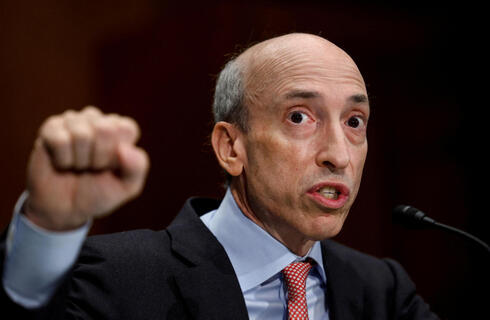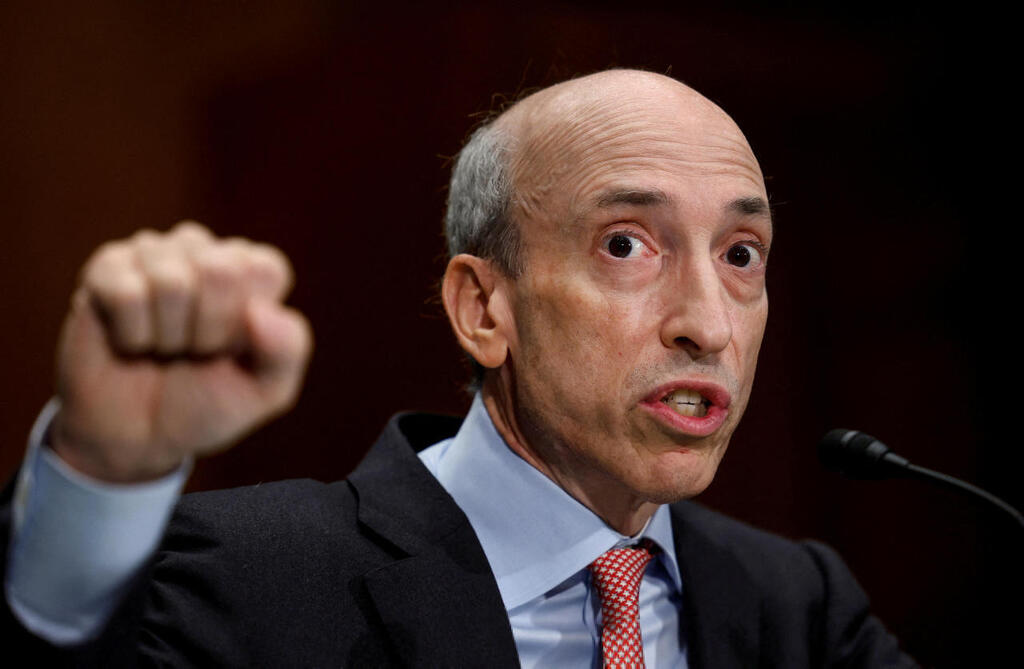
Hedge wars: New SEC restrictions make giant US funds see red
The US Securities and Exchange Commission (SEC) has published new rules that will require private investment funds, which manage $26 trillion, to be more transparent "in order to improve efficiency and competition in the market"
A giant battle is taking place these days in the United States between the Securities and Exchange Commission (SEC) and the largest investment funds in the world. After more than a year and a half of discussions, a series of rules that the SEC adopted in August is causing an uproar among private investment funds. The rules update the "Investment Advisers Law" from 1940 and are intended to oblige private funds - private equity funds, venture capital funds and hedge funds - which today manage approximately $26 trillion, to be transparent regarding the expenses and fees they charge.
Until now, the SEC has followed an approach of minimal intervention in the private investment market, assuming that the wealthiest investors, who are the customers of this industry, do not need the regulatory protections necessary for small investors. However, due to the expansion of the industry to huge volumes, the SEC claims, it is no longer possible to ignore the great influence of the private funds also on the public market and the small investors. According to the SEC, as of the end of 2022, there are more than 47,000 funds in the U.S. that manage approximately $20 trillion. In 2021, this number stood at 37,000 funds that managed $17 trillion, and in 2013, approximately 20,000 funds managed approximately $8 trillion.
The new rules mainly concern questions of transparency, control, standardization and prevention of conflicts of interest. Among other things, they include a requirement to issue quarterly reports detailing fees, expenses and performance, including the manner in which all these calculations were made. Fund managers engaged in secondary transactions (i.e. the purchase of shares from existing shareholders in private companies) in the field of venture capital will be required to obtain an opinion or valuation from a third party. This, among other things, with the aim of protecting investors from unreasonable valuations or when investors request to liquidate part or all of their holdings in a particular fund or to roll the investment into a new fund. All funds will be required to perform and publish annual audits. At the same time, the rules prohibit managers of the funds to grant preferential treatment to anchor investors, such as investment redemption or preferential rights related to information disclosures. The new rules also prohibit the funds from imposing legal costs on the investors, if these ultimately led to sanctions.
"Investors, big or small, will benefit from greater transparency, competition and integrity. It's not as if some state pension fund is profiting from opacity," SEC Chairman Gary Gensler said after the vote on the reform on August 23. "We take the comments from the public very seriously. What we are trying to achieve is improving the efficiency and competition of the market to benefit investors and issuers alike." Fund advisors will have a year to adapt to the requirements, unless they manage less than $1.5 billion, in which case they will have 18 months.
According to supporters of the reform, greater transparency and adherence to valuation practices would have reduced the damage caused by investments in the FTX crypto exchange that collapsed last year. "Closer listening would have provided critical details in the case of private fund investments in FTX, many of which, we now understand, were made with little analysis or rigor," said a letter to the SEC sent by eight Democratic senators who emphasized the need for transparency and external review of valuations. . "Fund managers often significantly influence the companies in which they invest. We saw this influence in action when private fund managers called on portfolio company managers to transfer deposits from Silicon Valley Bank, which contributed to its collapse," it said.
The collapse of the FTX crypto exchange has indeed directly affected thousands of small investors, some of whom lost their life savings, but the reform is not expected to protect only these indirectly, but also those saving for retirement directly. Today, more than 5,000 public pension funds collectively manage $5.6 trillion for more than 27 million Americans. These pension funds increased their investments in private funds from about 5% of their portfolio in the 1990s to more than 30% today.
The new rules are expected to allow the pension funds, among other things, to better compare the performance of the funds, fees and conditions. "Many in the private equity industry strongly oppose these reforms because the status quo provides them with excessive profits at the expense of investors with too little oversight," the non-profit organization Better Markets noted in a statement. "The rules proposed by the SEC address a threatening array of unfair, predatory and opaque work practices that have become all too common in the world of private equity advisors."
The SEC's reform also received strong opposition, and even though it was passed by a vote, it did not pass by consensus but by a majority of three to two. The division passed according to the party affiliation of the commissioners. Among the opponents was Commissioner Hester Pierce, a Republican appointed by then-President Donald Trump in 2018, who stated that the proposed laws embody "unnecessary government intervention". According to her, as long as the sophisticated and wealthy investors understand the terms on which they agree "why should the government care what these terms are?". She later stated that the legislation is confusing, harmful to competition, nor is it part of the Authority's authority.
Pierce's harsh words came despite the fact that the rules voted on by the commissioners were significantly softened compared to the proposal submitted in February 2022. Among other things, these did not include the expansion of legal liability for fund managers, they allowed arrangements with special conditions for certain investors provided proper disclosure was made, and the funds were even allowed to charge investors fees related to expenses due to regulation or legal investigations. This of course did not help calm the nerves of the fund managers, who are used to operating in this field for decades with minimal regulation.
The culmination of the opposition came with the filing of a lawsuit against the Authority by six interest groups. Among them are the Managed Funds Association (MFA), the National Venture Capital Association (NVCA), the American Investment Council (AIC), the Alternative Investment Management Association (AIMA), the National Association of Private Fund Managers (NAPFM) and the Loan Syndication and Trading Association (LSTA). These groups represent small and large funds, and include the dominant names in the field, including the Andreessen Horowitz venture capital fund, the world's largest private equity fund Blackstone, asset manager Apollo, and the world's largest hedge funds Bridgewater, which is managed by the Israeli Nir Bar Dea, and Citadel of Ken Griffin .
"The rules exceed the authority's statutory authority, were adopted without complying with notice and comment requirements, are arbitrary, capricious, constitute an abuse of discretion, and are contrary to the Administrative Procedure Law," reads the lawsuit in which the petitioners asked the court to cancel the rules. "The MFA is concerned that the rules will increase costs, undermine competition and reduce investment opportunities for pension funds and endowment funds," said Bryan Corbett, CEO of the MFA.
AIMA CEO Jack Inglis said that "the adoption of the rules is harmful, illegal and lacks a proper economic analysis of the impact on the private equity industry and the vital source of capital it provides."
"The SEC is pursuing an ideological agenda that goes far beyond its legal authority," said NVCA President and CEO Bobby Franklin. "This will have far-reaching consequences for innovation and economic growth in the U.S."
Throughout the litigation period of the proposed rules, including the public comment phase, the investment funds showed a growing patience. In August, they addressed one of the letters to the Authority and claimed that Gensler is demonstrating disproportionate regulatory activism by bringing in 46 new rules in the first two years of his tenure, compared to 24 rules in the first two years of his predecessor Jay Clayton. "The commission adopted a final rule that is unjustified, illegal, will harm the private funds industry, will harm jobs, innovation and the other benefits that private funds bring to the economy," claims the lawsuit filed in the Texas Court of Appeals. The lawsuit was filed in one of the most conservative courts in the country, because the NAPFM was set up in Texas. The group was established only a year ago, after the rules were first introduced by the SEC.















